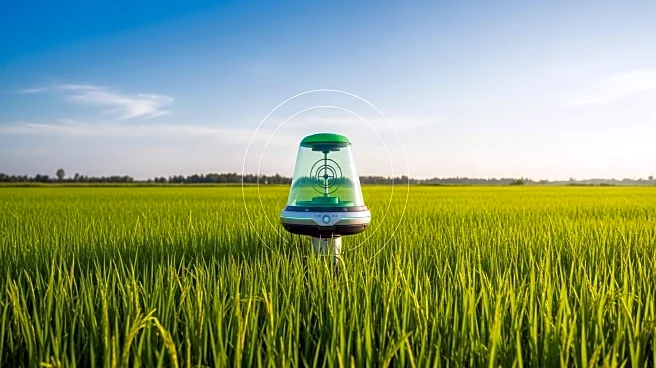What is the story about?
What's Happening?
BASF, in collaboration with the International Rice Research Institute, has conducted Global Carbon Field Trials focusing on rice cultivation. The trials aimed to evaluate climate-smart technologies and interventions that could reduce greenhouse gas emissions from rice farming, which traditionally contributes significantly to agricultural emissions. The findings indicate that a 30% reduction in greenhouse gas intensity is achievable without compromising rice yields. Key practices such as alternate wetting and drying, direct seeded rice, and improved straw management were identified as effective methods to reduce emissions and freshwater usage. These trials are part of BASF's broader commitment to reduce CO2e emissions in agriculture by 30% by 2030.
Why It's Important?
The results of BASF's trials are significant for the agricultural sector, particularly rice farmers who face the challenge of reducing emissions while maintaining productivity. By adopting these climate-smart practices, farmers can potentially access new business models like carbon markets, adding value to their operations. This initiative aligns with global efforts to combat climate change by reducing emissions from agriculture, a major contributor to greenhouse gases. The success of these trials could encourage wider adoption of sustainable farming practices, supporting both environmental goals and food security.
What's Next?
BASF plans to continue its collaboration with farmers, research institutes, and partners to scale these climate-smart solutions. The company aims to support farmers in accessing carbon markets and adopting sustainable practices. Further research and real-world testing will be crucial to refine these methods and ensure their effectiveness across different regions and conditions. The ongoing commitment to reducing emissions in agriculture will require continued innovation and cooperation among stakeholders.
Beyond the Headlines
The trials highlight the importance of integrating sustainability into agricultural practices, which could lead to long-term shifts in how food is produced globally. Ethical considerations around environmental impact and resource usage are becoming increasingly important in the industry. The success of these trials may influence policy decisions and encourage investment in sustainable agriculture technologies.


















